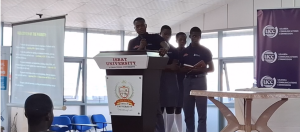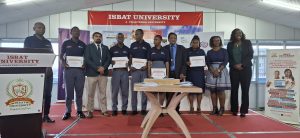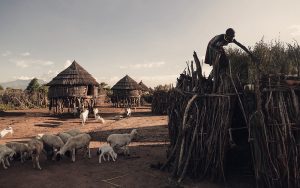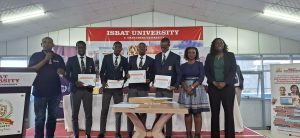Trinity College Nabbingo — YOSOIL: Smart Farming for a Sustainable Future
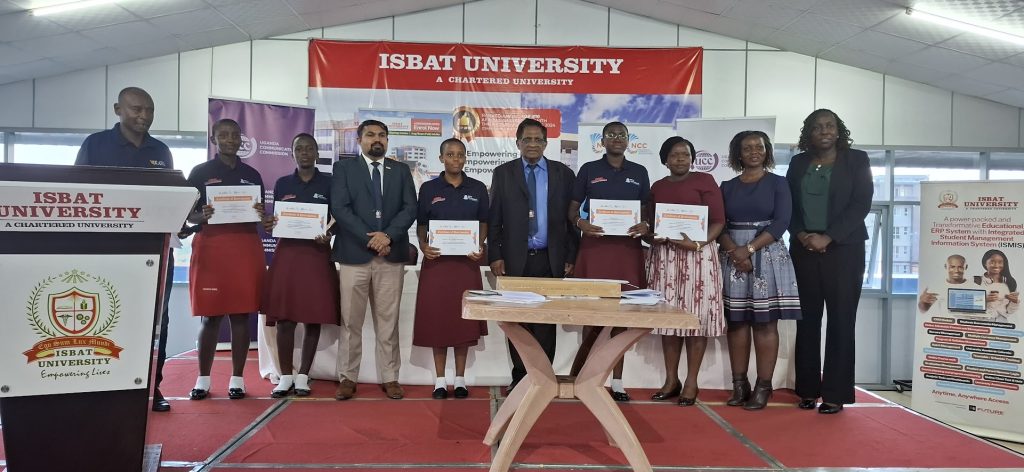
In Uganda’s agricultural heartland, where smallholder farmers form the backbone of food production, a quiet revolution is taking root — led not by seasoned scientists or multinational corporations, but by brilliant young minds from Trinity College Nabbingo. Their innovation, YOSOIL, is a mobile and IoT-based soil testing system powered by artificial intelligence and sensor technology, designed to give farmers accurate, real-time insights into their soil health and fertilizer needs.
For generations, farmers in Uganda have relied on guesswork to determine when and how to fertilize their crops. This has often led to soil depletion, low yields, and wasted resources. Recognizing this challenge, the ICT Club of Trinity College Nabbingo developed YOSOIL (Your Soil) — an intelligent system that provides smart, data-driven recommendations to farmers. The innovation aims to improve soil fertility management and promote precision agriculture across rural communities, where most farmers lack access to laboratory testing and agricultural extension services.
Using a combination of IoT sensors, AI algorithms, and a user-friendly mobile app, YOSOIL measures key soil parameters such as moisture, pH level, temperature, and nutrient composition. The data collected is instantly analyzed by the system’s AI engine, which generates customized fertilizer recommendations tailored to each farmer’s soil condition and crop type. This ensures that farmers apply just the right amount of fertilizer — neither too much nor too little — improving both soil health and crop productivity.
What makes YOSOIL truly transformative is its accessibility. The system is designed to work even in low-connectivity areas, with offline data caching and SMS alerts for farmers without smartphones. The mobile interface is available in both English and local languages, ensuring that farmers from diverse backgrounds can easily interpret the results. By integrating local weather patterns and soil databases, YOSOIL helps farmers plan their planting seasons more effectively and adapt to the realities of climate change.
The innovation directly contributes to Sustainable Development Goals (SDGs) — particularly SDG 2 (Zero Hunger), SDG 9 (Industry, Innovation, and Infrastructure), and SDG 13 (Climate Action). It also aligns with Uganda’s National Development Plan (NDPIII) goals of promoting digital innovation in agriculture and enhancing food security through technology.
Beyond the fields, YOSOIL represents a powerful story of youth empowerment and applied learning. The team behind the project — a group of passionate innovators from Trinity College Nabbingo ICT Club — combined their classroom knowledge with real-world problem-solving to create a product that can transform farming practices across the country. Through their collaboration, they gained valuable experience in IoT programming, AI integration, UI/UX design, and data analysis, showcasing how schools can serve as innovation hubs for national development.
The potential of YOSOIL extends beyond Uganda. As a scalable and adaptable solution, it can be implemented in other African countries facing similar challenges with soil degradation and low crop yields. The team envisions a future where YOSOIL integrates with government agricultural databases and farmer cooperatives, creating a nationwide digital ecosystem for smart farming.
With innovations like YOSOIL, the future of Ugandan agriculture is bright — data-driven, sustainable, and inclusive. The young innovators from Trinity College Nabbingo are not just coding apps; they are cultivating hope, food security, and a smarter tomorrow for every farmer.

